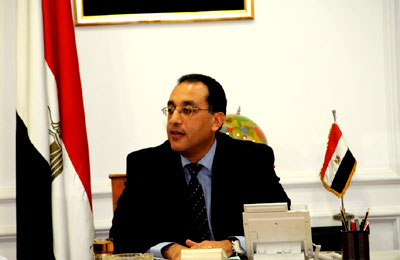
Madbouly ...... to offer cheap loans for completing unfinished
buildings.
Egypt eyes illegal buildings for tackling housing crisis
CAIRO, October 22, 2014
Egypt plans to offer cheap loans for completing apartments in unfinished buildings thrown up illegally across its cities, hoping to tackle a housing crisis that has helped to topple two presidents since 2011.
Housing Minister Mustafa Madbouly said the cabinet had approved the project designed to help Egyptians who built or bought bare apartments in the unplanned buildings but can't afford to finish them, many living in the empty shells.
"Instead of, as a government, directly constructing new buildings we are going to offer an initiative through which we give a soft loan to people to go and finish those vacancies," Madbouly said in an interview for the Reuters Middle East Investment Summit.
Madbouly arguably has Egypt's toughest job. A population of 85 million is squeezed into the small percentage of land that isn't desert, mainly in narrow strips on the banks of the Nile and in its river delta.
With that population growing relentlessly, the government is searching for a solution among the rows of unfinished red brick and concrete buildings that have mushroomed in the turbulent three years since the overthrow of President Hosni Mubarak.
Under the scheme, the loans will carry very low interest rates and be repayable over longer periods "to encourage the people to come and start finishing this and occupying these vacant plots, specifically on those unplanned or low-income areas", said Madbouly.
Egypt's urban sprawl has eaten into scarce farmland for decades but the pace of unlicensed building exploded after Mubarak's fall in a popular uprising. Many Egyptians started constructing the multi-storey buildings without seeking permits or adhering to safety standards.
Property developers joined it, aware of rising demand and wanting to make a quick buck under lax government supervision as the poor longed for homes.
Officials say at least 450,000 of these buildings were built without official permission in the three years marked first by Mubarak's fall and then the ousting by the army of his Islamist successor Mohammed Mursi following more popular protests.
Madbouly said informal settlements make up between 40 and 50 per cent of urban area. Under the scheme, which is expected to begin before the end of the year, the government will offer loans of E£30,000 ($4,195).
It will be financed through a central bank initiative designed to fund low- and middle-income housing.
The government is trying to reduce the kind of public discontent over housing shortages that helped to bring people out onto the streets against Mubarak and Mursi.
"You know very well that part of the revolutions that have happened recently, one of the major players there were the people from these communities," said Madbouly.
"So unless you give more focus and more attention to the development and improvement and the condition of those people, they might again have another round, so this is basically what we are trying here to do."
Madbouly said the government wouldn't ask for proof of ownership of apartments, sidestepping a problem with construction that lacks official paperwork, but would encourage the private sector to take part in ventures in the middle- and low-income market.
The government has also announced plans to build one million houses for middle-income Egyptians in a project worth E£280 billion ($39 billion), one of the biggest in the region, with the help of UAE-based Arabtec Holding.
Rural areas, where 85 per cent of residents have no access to sewage systems, present some of the biggest problems for Madbouly, who said he has put his phone number on Facebook to field complaints.
"It makes me unable to sleep comfortably every day. Really this is a big problem and you have this bitterness - you know you can do something tangible for the people but you are lacking the finance," he said, adding his main concern is sanitation.
"You know very well that you can do something and you have now all the means, technical, human resources, attracting technology, but the problem is the means," he added.-Reuters







